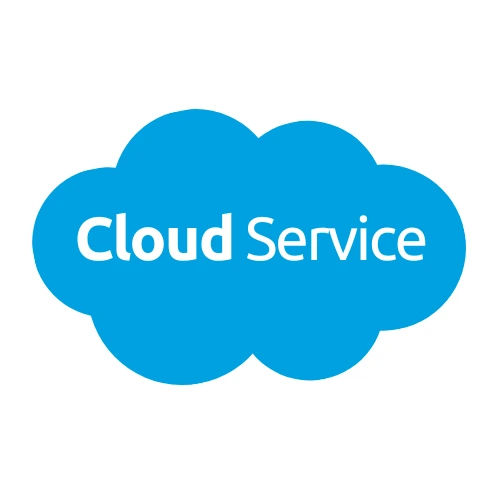Cloud computing has transformed the operational landscape for small businesses, bringing about a revolutionary change in their methods of operation. This article is on “Cloud-Based Project Management Software for Small Businesses” With cloud-based solutions, startups and small businesses can access enterprise-grade tools and infrastructure without huge upfront costs.
One area where the cloud has made a major impact is project management. Cloud-based project management software gives small teams powerful collaboration, tracking and planning capabilities that once required expensive on-premise systems.
Cloud Computing Solutions for Startups
For early-stage startups and small businesses, adopting cloud computing solutions offers many benefits. Instead of investing in servers and software, cloud services allow you to pay only for what you use. This gives you access to best-in-class technology on an affordable, scalable basis.
Some key advantages of cloud computing for startups include:
Lower costs
No need to purchase expensive hardware and software licenses upfront. Pay predictable monthly fees and scale up or down as needed.
Flexibility
Cloud services can be accessed from any location as long as there is an internet connection available. This enables remote work and collaboration.
Scalability
Cloud platforms make it easy to add capacity like storage, computing power or users as your needs grow.
Latest technology
Cloud providers continuously update their infrastructure and tools. This means you get access to the newest tech.
Focus
With the cloud handling IT, you can devote more time to building your product and serving customers.
For resource-constrained startups, the flexible, pay-as-you-go nature of cloud computing can be a perfect fit.
Cloud Computing Benefits for Small Businesses
The advantages of the cloud apply just as strongly to established small businesses. Cloud computing delivers important benefits including:
Cost savings
The cloud eliminates expenses for on-site hardware and IT staff. Monthly subscriptions are often 80% less than traditional software.
Accessibility
Employees can securely access company data and apps from any device. This enables remote work and improves productivity.
Disaster recovery
Cloud data is stored on remote servers with built-in redundancy. This protects against data loss in case of events like hard drive failures.
Collaboration
The cloud facilitates real-time collaboration across teams and locations through shared documents and workflows.
Scalability
Cloud platforms easily accommodate seasonal peaks and growth in bandwidth demands. You pay only for the resources you need.
Latest Features
Cloud providers deliver a steady stream of new features and upgrades, which are instantly available to users.
For small businesses, adopting cloud solutions can level the playing field with larger competitors. The cloud gives you the infrastructure and capabilities to punch above your weight.
Cloud Computing Security for Startups
Although the cloud offers many benefits, some startups express concerns about potential security risks. However, with proper precautions, you can utilize the cloud securely. Some best practices include:
- Carefully evaluate the security measures of any cloud provider you consider. Look for certifications, audits and features like two-factor authentication.
- Scrutinize the provider’s track record for outages and breaches. Favour established vendors with a reputation for reliable security.
- Use unique strong passwords and multi-factor authentication for all cloud accounts and apps. This prevents unauthorized access.
- Configure cloud data permissions to limit access to only those who truly need it. Avoid sharing credentials across teams.
- Use cloud security tools like encryption, VPNs and firewalls to protect sensitive data like customer information or financials.
- Maintain control over encryption keys so only you can access encrypted cloud data. Do not let the provider hold the keys.
- Monitor user activity and access logs regularly to spot any anomalies that could indicate a breach.
- Have an incident response plan in place to dictate actions if a breach does occur. This speeds up reaction time.
With proper precautions, the security of cloud platforms can equal or exceed what a small startup could achieve on its own. Done right, the cloud introduces no new risks.
Cloud Computing Platforms for Small Businesses
When moving to the cloud, small businesses have many platform options to choose from. Some top providers include:
Amazon Web Services
The market leader, AWS offers an unmatched breadth of IaaS and PaaS services. It leads in innovative cloud products and global infrastructure. The downsides are its complex pricing and steep learning curve. Best for technical teams.
Microsoft Azure
An excellent choice for companies invested in other Microsoft products. Tight integration with commonly used tools like Office 365. Easier for non-technical users than AWS. More limited in services than AWS but growing quickly.
Google Cloud Platform
Google’s cloud offers leading AI and big data capabilities. Simplified pricing model. Intuitive console and command line tools improve ease of use. Still catching up with AWS and Azure in features and global presence.
Salesforce
The SaaS CRM leader also offers extensive cloud development platforms focused on customer experiences. Powerful tools for workflow automation and data analysis. Mostly proprietary technologies limit openness.
Adobe Experience Cloud
Adobe targets marketing and sales use cases like analytics, content management and personalization. Tightly integrated end-to-end solutions. Mainly useful for companies highly invested in Adobe creative tools.
Consider factors like your existing tech stack, in-house expertise and primary use cases when selecting a platform. The major providers offer free tiers to test options.

Cloud Computing Services for New Businesses
For entrepreneurs starting a new business from scratch, leveraging cloud services can massively accelerate growth while minimizing cost. Some vital cloud solutions include:
Infrastructure
Rather than investing in servers and data centres, use Infrastructure as a Service (IaaS) like AWS, Azure or GCP for elastic computing, storage, networking and security. Go serverless when possible.
Productivity Software
Instead of purchasing Office licenses, use cloud-based productivity suites like G Suite or Office 365. Collaboration apps like Slack, Asana and Dropbox optimize teamwork.
Finance & Accounting
Cloud accounting systems like QuickBooks Online or FreshBooks provide invoicing, expenses, payroll and reporting. Tax preparation software like TurboTax streamlines compliance.
Marketing & Sales Tools
Cloud email services like MailChimp, CRMs like Salesforce and live chat software facilitate connecting with prospects. SEO and PPC management tools like SEMrush aid acquisition.
Virtual Workspaces
With the cloud enabling remote work, tools like Zoom, Loom and Figma support secure videoconferencing, asynchronous communication and cloud-based design.
New ventures no longer need bricks-and-mortar offices and thousands in hardware costs to get started. The cloud provides the essential infrastructure and capabilities.
Cloud Computing Management for Startups
To fully benefit from the cloud, startups need to ensure they properly manage their cloud architecture, usage and spending. Key considerations include:
Cost Management
Actively track cloud expenses against budgets. Use spending dashboards and alerts to detect anomalies or overspending. Rightsize workloads on an ongoing basis.
Access Controls
Limit employee permissions to only necessary services and data. Implement strong identity and access policies. Use single sign-on systems to centralize access.
Automation
Automate provisioning, backups, failover and other routine tasks through infrastructure as code. Scripting and orchestration reduce errors and costs.
Security Hygiene
Follow a least-privilege model for access. Encrypt data and communications. Use tools like Cloud Access Security Brokers to enforce policies. Maintain strong password practices.
Uptime Monitoring
Get alerts for any application or service outages. Conduct load testing and failover drills. Check status pages and schedule maintenance windows.
Vendor Management
Diversify across vendors to avoid lock-in. Negotiate favourable contract terms for billing, support, transparency and termination.
By implementing strong management practices, businesses can guarantee that the adoption of cloud technology not only aligns with their objectives but also mitigates potential risks.
Cloud Computing Infrastructure for Small Businesses
Small businesses have many options when it comes to cloud infrastructure. Some core components to consider include:
Computer – Services like AWS EC2 and Azure Virtual Machines provide scalable virtual servers. Functions as a Service (FaaS) like AWS Lambda enable serverless computing.
Storage – Object storage like Amazon S3 offers cheap, durable storage for data. Block storage provides high-performance volumes to attach to VMs.
Networking – Virtual private clouds, peering connections, traffic managers and load balancers connect and distribute application traffic.
Databases – Managed relational databases like AWS RDS provide ACID-compliant storage. NoSQL databases like DynamoDB offer flexibility and scalability.
Security – Tools like AWS IAM, VPCs, encryption, firewalls, role-based access controls and multi-factor authentication ensure robust security.
Analytics – Services like Amazon EMR allow big data processing. Business intelligence tools provide insights from data.
Management – Automation, orchestration and infrastructure as code tools simplify management at scale. Monitoring and alerting maintain uptime.
The leading cloud platforms offer fully managed services in each infrastructure category. Mix and match modular services to build your optimal tech stack.

Cloud Computing Adoption for Startups
For startups, strategically adopting cloud computing is crucial to maximize benefits and minimize risks. Some best practices include:
- Take inventory of all existing apps and infrastructure. Prioritize which to migrate or rebuild for the cloud.
- Set policies for cloud vendor selection, architecture, security and compliance. Align on goals and processes upfront.
- Start small with a pilot project to test the waters before wholesale migration. Learn from the initial experience before expanding.
- Build in-house skills and training – don’t offshore responsibility entirely to vendors. Cloud expertise is a core competency.
- Instrument everything and collect data from day one. Cloud monitoring and analytics inform optimization.
- Validate security and compliance controls thoroughly. Conduct penetration testing and audit frequently.
- Architect for scalability, elasticity and high availability to benefit from cloud agility.
- Leverage managed services and automation to reduce costs and overhead wherever possible.
Moving legacy systems to the cloud can be challenging. With a gradual, metrics-based approach, startups can smoothly transition at their own pace.
Cloud Computing Jobs in Startup Companies
As startups adopt the cloud, they need talent with specific skill sets to migrate, build and manage cloud-based systems. Some key roles include:
Cloud Architect
Designs overall cloud architecture and integrates components. Ensures scalability, reliability, performance and security. Deep knowledge of major cloud platforms is required.
Cloud Engineer
Implements architecture designs. Deploys and manages infrastructure as code. Automates provisioning and configuration. Proficiency in tools like Terraform or Ansible essential.
Cloud Data Engineer
Creates data storage, pipelines, models and analytics tools on the cloud. Background in big data and AWS/Azure data services preferred.
Cloud Security Engineer
Enforces security policies and tools across the cloud environment. Mitigates risks through access controls, encryption, audits and incident response.
Cloud Systems Administrator
Handles day-to-day operations of cloud infrastructure. Manages costs, monitors uptime and troubleshoots issues.
Cloud Developer
A cloud developer builds, tests and deploys cloud-native applications. Skilled in microservices, containers and orchestration tools like Kubernetes.
The cloud talent shortage means startups must train and reskill existing employees. With specialized cloud roles, you can fully leverage the cloud’s potential.
The cloud unlocks game-changing capabilities for startups and small businesses. With smart adoption, you can compete and innovate like never before, all while keeping costs variable and contained. Plan your cloud roadmap strategically, invest in cloud-native talent, and ensure robust management. The cloud revolution has opened the startup floodgates your success is waiting.
